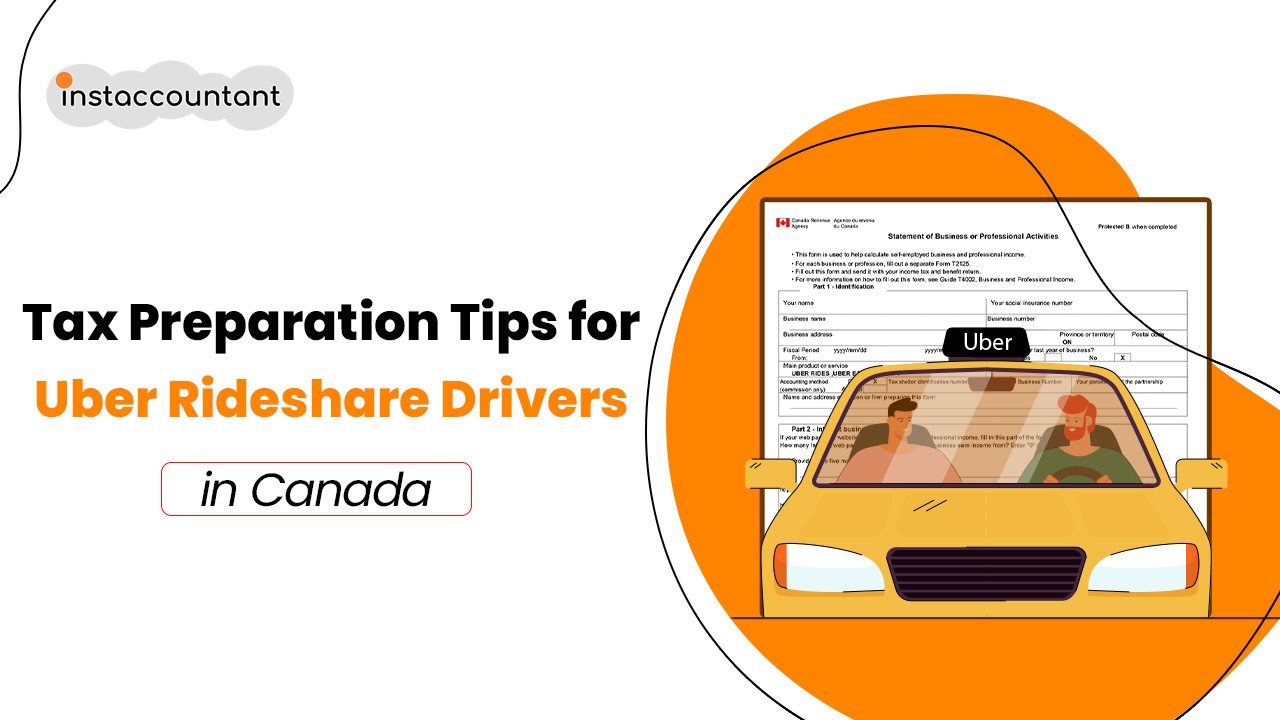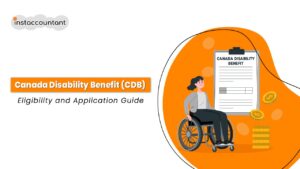In today’s gig economy, services like Uber provide Canadians with a flexible way to earn income. However, this flexibility necessitates a high level of responsibility, particularly in tax matters. Understanding your tax obligations as an Uber driver is crucial to avoid unforeseen issues during tax season. This comprehensive guide will simplify everything you need to know about Uber taxes in Canada, covering everything from GST/HST registration to deductions. By mastering these aspects, you can navigate tax season smoothly and retain more of your hard-earned money.
Understanding Driver Inc. (PSB)
As an Uber driver in Canada, you’re classified as a Personal Services Business (PSB), essentially an independent contractor. This means you’re responsible for self-reporting your income and paying taxes on your earnings, similar to a self-employed individual. While you could consider incorporating your business for potential benefits, this step comes with its own set of complex legal and financial considerations. It’s wise to consult with a tax expert who can shed light on whether this move fits your unique situation. A tax professional’s advice can be invaluable in determining if taking the incorporation route is beneficial for your driving business. This expert guidance can simplify the complexities and help you make an informed decision that’s right for your business and personal financial goals.
Understanding Your Rideshare Earnings
As an Uber driver in Canada, your income isn’t solely derived from passenger fares. In addition to regular fares, Uber often offers bonuses for various achievements such as reaching ride quotas, completing trips during peak hours, or referring new drivers. These bonuses, along with referral incentives and special offers, contribute to your total taxable income and should be accounted for in your tax return. It’s important to note that these earnings aren’t categorized separately but are part of your overall income.
To effectively manage multiple income streams, consider utilizing rideshare-specific apps like Zoombooks, which allow you to categorize your earnings in a user-friendly format. Alternatively, a simple spreadsheet can also serve this purpose. The key is to choose a system that works for you and maintain consistency throughout the year.
One of the advantages of being an Uber driver is the ability to deduct legitimate business expenses from your taxable income. These expenses typically include vehicle maintenance, fuel, insurance, mobile phone plans, and tolls. Meticulous record-keeping is crucial, so it’s essential to retain receipts for all expenses. If you use your personal phone for work, maintaining a separate log to track business-related calls and data usage is recommended.
Tax Filing Requirements and Deadlines
When it comes to tax filing requirements and deadlines for Uber rideshare drivers in Canada, it’s crucial to understand the key forms and timelines involved:
- T1 General Income Tax and Benefit Return: This annual form reports all your income, including your Uber earnings. Make sure to include your Uber income alongside any other income sources you might have.
- T2125 Form: Think of this as your business logbook also known as the Statement of Business or Professional Activities. This includes gas, vehicle maintenance, cell phone charges (with limitations), car washes and parking tickets. Since you’re considered a self-employed, these deductions can significantly reduce your taxable income!
- GST/HST Returns: These are filed to report the sales tax collected and remit any balance owed to the CRA. The frequency of filing these returns varies based on your total annual revenue. The CRA website has a handy tool to help you determine your filing frequency.
The Canada Revenue Agency (CRA) sets specific dates by which different returns must be filed. For most individuals, the deadline for filing the T1 General Income Tax and Benefit Return is April 30th of the following year. However, if you or your spouse/common-law partner is self-employed, you have until June 15th to file your return. Missing these deadlines can lead to penalties, so it’s important to mark your calendar and ensure timely filing.
GST/HST Registration for Uber Rideshare Drivers
If you’re an Uber driver in Canada, it’s crucial to note that regardless of your income level or the frequency of your driving, you are required to promptly register for a GST/HST account with the Canada Revenue Agency (CRA) within 30 days of your initial trip. This obligation is a result of the CRA’s classification of rideshare services as a commercial activity. Fortunately, the online registration process is efficient and provides you with your GST/HST number instantly, enabling you to effectively collect and remit sales tax on your fares.
Sales Tax Responsibility
As a rideshare Uber driver, you’re responsible for collecting, remitting, and filing sales tax on your fares. The specific rate depends on your province of operation:
- HST (Harmonized Sales Tax): 13% in Ontario and 15% in New Brunswick, Newfoundland and Labrador, Nova Scotia, and Prince Edward Island.
- GST (Goods and Services Tax): 5% in Alberta, Saskatchewan, Manitoba, and British Columbia.
Quebec Exemption (Uber Only): In Quebec, Uber acts as a “collecting agent,” collecting and remitting GST/QST on your behalf. However, you are still obligated to file an annual return with the CRA.
GST/HST Requirements for Non-PR (Students/Workers)
For our international students and temporary workers hitting the road with Uber in Canada, there are some additional GST/HST considerations. Just like regular drivers, you’re required to collect sales tax (GST/HST) on each trip and remit it to the Canada Revenue Agency (CRA). To register for the GST/HST, you’ll need to fill out Form RC1, “Request for a Business Number and Certain Program Accounts.” This form can be faxed or mailed to your designated non-resident tax services office.
Important note: If your Social Insurance Number (SIN) begins with a “9,” you won’t be able to register online. In this case, contact the nearest Non-Resident TSO (Tax Services Office) to get assistance with registration.
Tax Preparation Tips for Uber Rideshare Drivers
- Track Your Expenses: Optimizing tax returns for Uber rideshare drivers depends on careful financial management. It’s crucial to keep a detailed record of all business expenses, like fuel, vehicle maintenance, tolls, limited phone costs, and car insurance. This record-keeping forms the basis for using deductions to lower taxable income.
- Consider Bookkeeping Apps: Using digital tools like Zoombooks can transform expense management and tax preparation. These apps are designed for rideshare drivers, making it easier to track and submit business expenses, improving overall financial management.
- Seek Professional Help: Understanding tax rules can be challenging. That’s why getting advice from a tax expert, especially one who knows about self-employment taxes, is a smart move. They can help find deductions and ensure compliance with tax laws, protecting your financial well-being.
Additional Considerations
- Keeping Records: Always maintain meticulous records of your income, expenses, and mileage driven for Uber. This detailed logbook becomes your key to accurate tax filing. Remember, the CRA relies on your records to verify your income and deductions, so the more detailed they are, the smoother your tax season will be.
- Claiming Deductions: Explore all eligible business expenses related to Uber driving. This can include car repairs, insurance premiums, phone bills, car depreciation (calculated using the Capital Cost Allowance method), and tolls incurred during work hours. Every deduction you claim reduces your taxable income, putting more money back in your pocket!
- Estimated Payments: If you’re a high earner anticipating owing a significant amount in taxes (more than $30,000) at the end of the year, consider making estimated tax payments throughout the year. This proactive approach helps you avoid penalties from the CRA and keeps your tax burden manageable, preventing a large year-end tax bill surprise.
Conclusion
For Uber rideshare drivers, understanding and fulfilling tax obligations is as important as keeping your vehicle roadworthy. By following the guidelines outlined above, you can navigate the tax roads of Canada with confidence, ensuring that you stay compliant and optimize your financial outcomes. Remember, when in doubt, consult a tax professional to steer you in the right direction.





